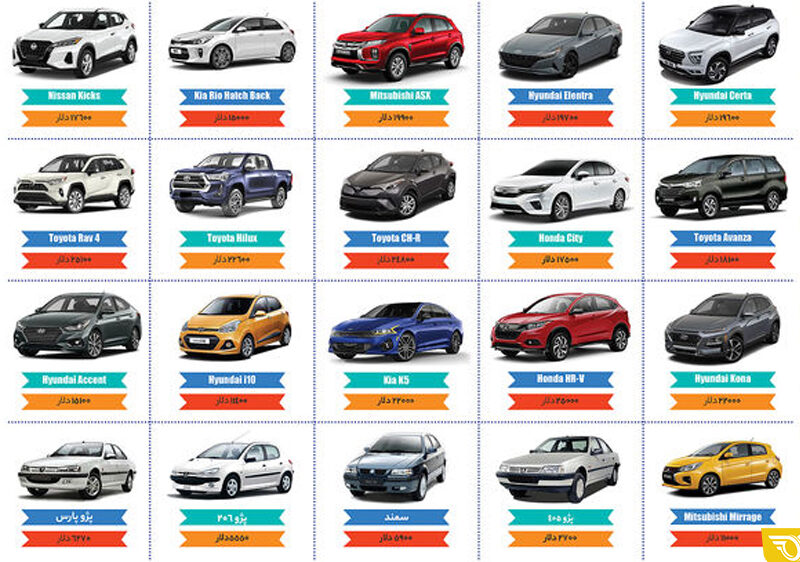In the 2024 budget proposal, significant changes have been made to car import policies, which will deeply affect both consumers and domestic manufacturers. In this article, we thoroughly examine the details of this law, its benefits, and potential impacts on the car market and industry in Iran.
Details of the New Car Import Law
- Currency Allocation for Importing New and Used Cars
The government has allocated 3.3 billion euros for importing new and used cars (maximum five years old). This measure aims to regulate the car market and reduce the supply-demand gap in the country. - Reduction of Import Tariffs to 60%
The import tariff, which was previously one of the main factors driving up the prices of imported cars, has now been reduced to 60%. This decision will make high-quality foreign cars more accessible to consumers. - Car Imports by Iranians Abroad
Iranians living abroad can now import one car annually without the need for foreign currency and with a 60% import duty rate. This change will not only help increase the diversity of imported cars but will also create new economic opportunities for these individuals. - Priority for Modern and Clean Cars
The import of electric cars, hybrid cars, and vehicles with low fuel consumption and low emissions is one of the main priorities of this law. This decision is in line with environmental goals and aims to reduce air pollution.
Benefits of This Law for Consumers and the Market
- Reduction in the Price of Imported Cars
The reduction in import tariffs and the allocation of currency for new and used cars will lead to lower prices for imported vehicles. This is particularly attractive for consumers looking for high-quality and affordable cars. - Increased Variety of Cars in the Market
This law facilitates the import of both new and used cars, giving consumers more options. Buyers will have access to cars with more advanced technologies and modern features. - Improved Competition in the Domestic Market
The entry of high-quality imported cars will force domestic manufacturers to improve their products. This healthy competition can benefit consumers and contribute to the overall improvement of the car industry. - Development of Clean Transportation and Reduction of Emissions
Focusing on the import of electric and hybrid cars will increase the use of clean vehicles in the country, which will have a positive impact on reducing air pollution and improving the quality of life.
Impact on the Domestic Automotive Industry
- Pressure to Improve Quality and Fair Pricing
The import of high-quality foreign cars will compel domestic manufacturers to improve the quality of their products and offer more transparent pricing. This change could lead to greater consumer satisfaction with domestic cars. - Technology Transfer to the Country
By allowing the import of advanced vehicles, new technologies will be introduced to Iran that can be utilized in the domestic automotive industry. - Facilitation of Replacing Old Cars
One of the country’s major challenges is the large number of outdated vehicles. This law, by easing the importation of used cars, can help renew the transportation fleet.
Challenges and Requirements for the Success of This Law
- Transparency in the Implementation of Regulations
The success of this law depends on the creation of clear and fair regulations to prevent misuse and corruption. - Management of the Country’s Currency Reserves
The allocation of 3.3 billion euros for imports must be carefully managed to prevent an economic crisis while ensuring effective imports. - Support for Domestic Production Alongside Imports
Although the import of foreign cars can improve the market, measures should also be taken to support domestic manufacturers to contribute to the sustainable development of the industry.
Conclusion
The new car import law, with the reduction of tariffs, currency allocation, and simplified import conditions for new and used cars, presents an unprecedented opportunity for improving the quality of the car market in Iran. This initiative can lead to increased competition, better quality, reduced air pollution, and economic growth in the country. However, successful implementation requires transparency, effective resource management, and close cooperation between the government, car manufacturers, and consumers.
These changes not only benefit consumers but also represent a positive step forward for the future of Iran’s car industry and could pave the way for sustainable transformation in this sector.


